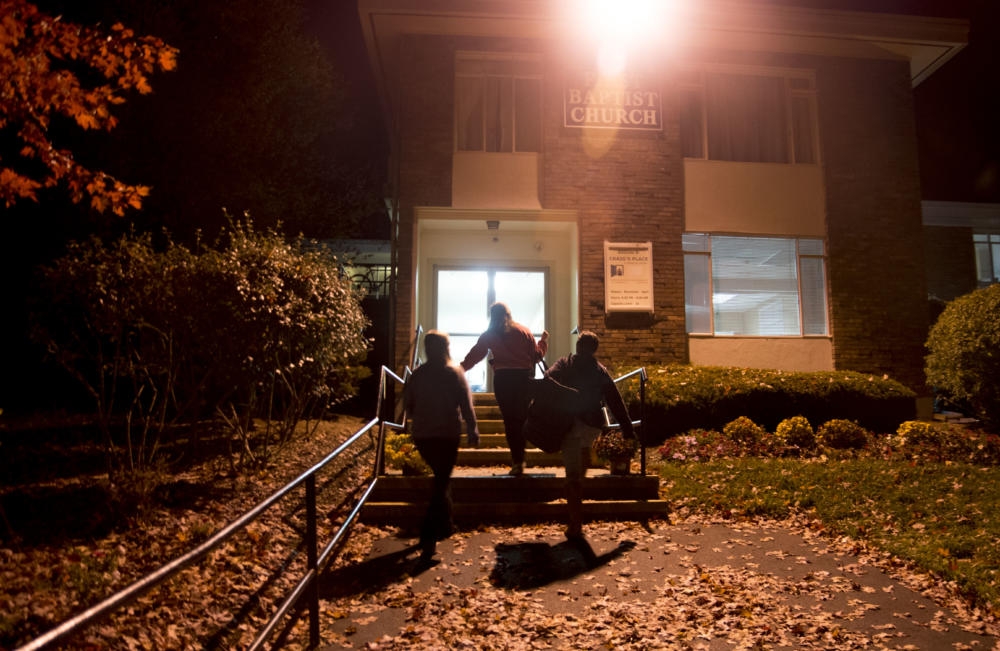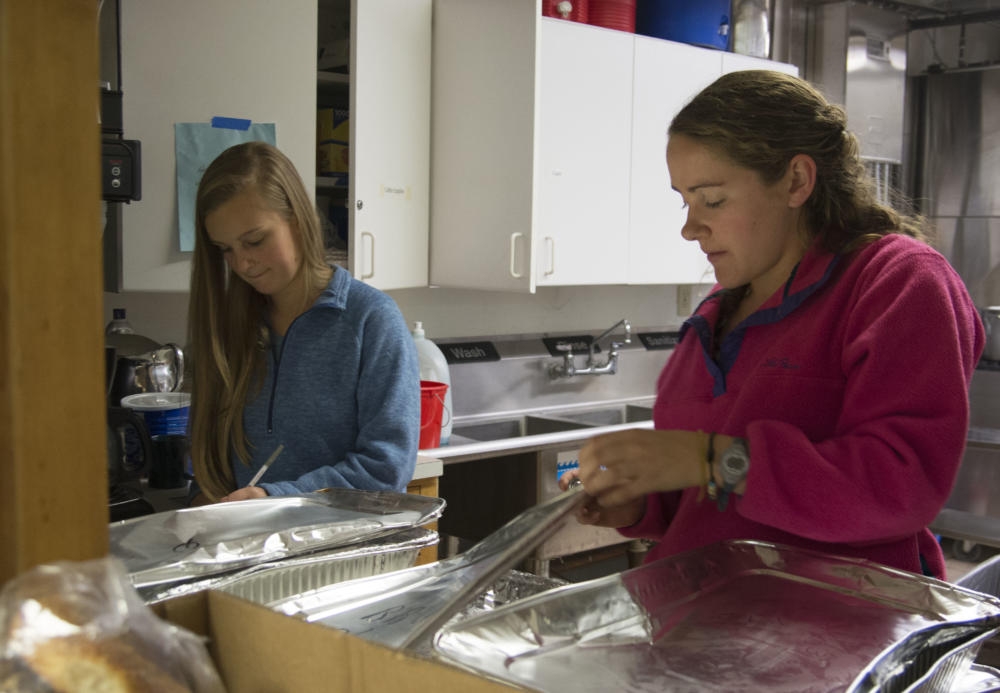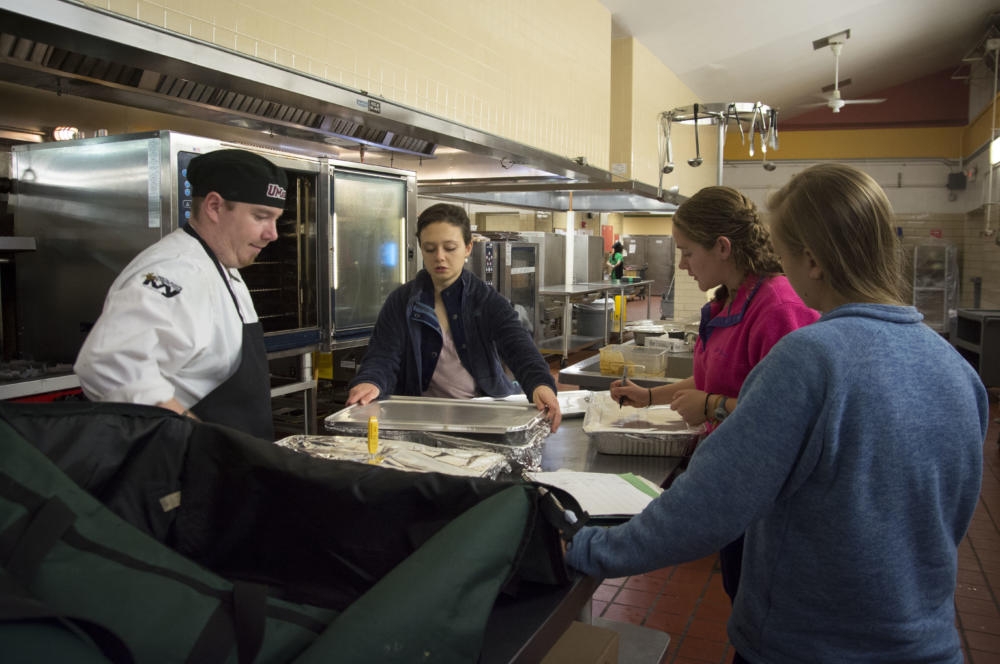The food at UMass Amherst is somewhat legendary. The Princeton Review even named the school number one in the nation for best campus food for the first time this year.
Now a group of students at the school is trying to make sure those high-quality meals get shared — not wasted.
It’s a Thursday night at UMass Amherst and students are filing into the dining halls to grab dinner. But senior Kellan Morgan and junior Shannon Flynn are headed behind the scenes.
“So we meet up in Worcester dining hall usually with one or two volunteers and a leader and we go into Worcester dining hall up through the back side,” Morgan explained.

Flynn and Morgan are co-presidents of the UMass chapter of an organization called the Food Recovery Network. Student volunteers pick up whole trays of uneaten cooked food from the kitchen five nights a week.
The menu on this night: mac and cheese, barbecue chicken, Brussels sprouts.
They slide the trains into insulated bags — like the ones your pizza guy has — and head outside to Flynn’s Volkswagen.
They’re headed to Craig’s Doors, a homeless shelter in Amherst. There, the food gets frozen overnight until it’s ready to heat up and serve to shelter guests the next day.
Sophomore Erika Akerson is volunteering with the Food Recovery Network for the first time this semester.
“Yeah, it was really easy,” Akerson said. “It was really quick too.”
The whole trip takes just about 30 minutes. Not a lot of work, but Craig’s Doors shelter director Jade Lovett said the UMass food makes up a big portion of what gets served to the 22 people per night the shelter feeds and houses November through May.

“If we didn’t have such a big, reliable, awesome base of volunteers and people like the Food Recovery Network donating things to the shelter, it would be so much more difficult to actually pull this off,” Lovett said.
The Food Recovery Network was started five years ago at the University of Maryland and now has chapters on almost 200 college campuses around the country, including 10 others in Massachusetts. Each chapter has a similar setup to donate dining hall meals to homeless shelters and community organizations.
UMass got involved in 2014 and Flynn said the club has dozens of regular volunteers.
“So many people have come up to me and said, ‘Oh I wanted to do this!’ It just like, makes sense to people,” Flynn said. “They’re like, ‘Why aren’t we doing this already?’ It’s like, ‘We are!’”
Americans throw away more than 30 million tons of food each year, according to the EPA.
UMass has a massive food composting program, so it’s not like all those student leftovers would end up in landfills. But Morgan said the club is glad to get some of the uneaten meals to hungry people as well.
“A lot of students have an illusion of Amherst as a kind of, upper class upper-middle class, white community,” Morgan said. “But it’s not true at all, there’s a lot of food insecurity in the community and a lot of homelessness too and it’s really easy to be blind to that if you don’t leave campus; if you don’t get out and see it.”
UMass dining serves some 50,000 meals a day in four dining halls and dozens of smaller cafes and eateries. The UMass Food Recovery Network picks up just a few trays per night from just one of those kitchens.
Flynn said the club eventually hopes to reach out to more dining halls and more local charities. For now, she said, at least a few pounds of the school’s famous food get shared.
